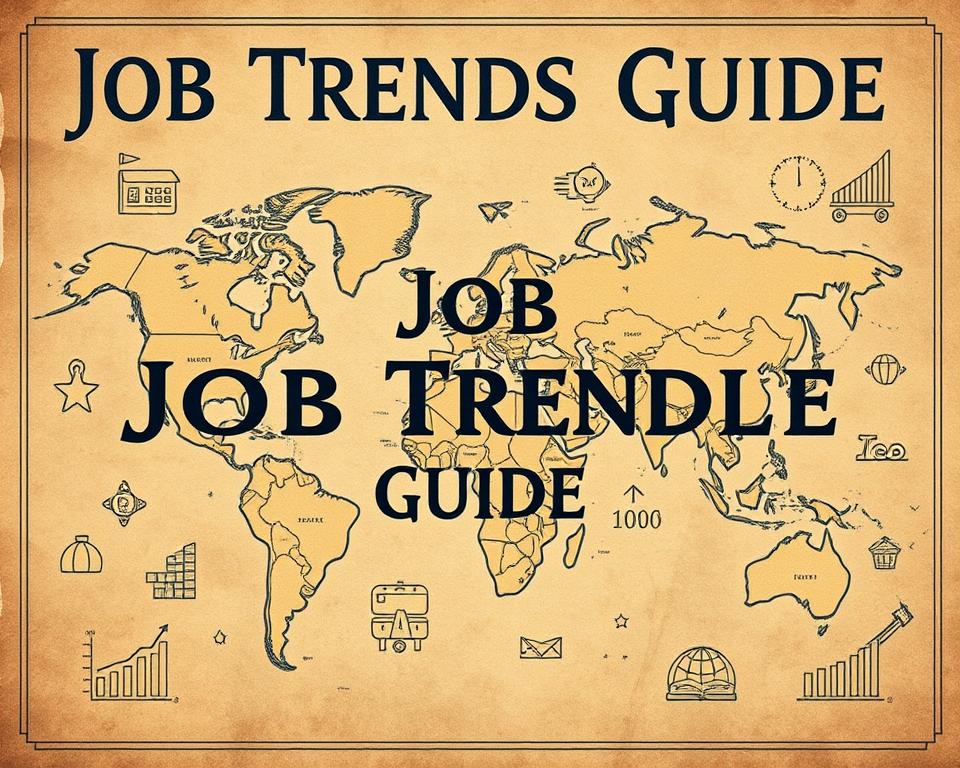Anúncios
As we navigate through the year 2023, the job market is undergoing profound changes influenced by various economic factors, technological advancements, and shifting employee expectations. One of the most significant trends reshaping this landscape is the rise of remote work. This phenomenon has emerged as a substantial element impacting workplace dynamics and has established long-term implications for employment structures globally.
The COVID-19 pandemic accelerated the transition to remote work, leading organizations to adopt these practices to ensure continuity in operations. What many firms initially regarded as a temporary solution has now transformed into a fundamental aspect of modern employment. The 2020 health crisis forced businesses to rethink traditional work models, resulting in a surge of remote work opportunities. Employees relish the flexibility remote work affords, resulting in enhanced job satisfaction and overall productivity across various sectors.
The flexibility of remote work arrangements has been a game-changer for countless individuals. Many workers now have the ability to balance their professional responsibilities with personal life demands more effectively, creating an empowering environment. This newfound equilibrium has only intensified the drive for job seekers to pursue and retain remote work opportunities, transforming their professional landscape. Workers appreciate the autonomy that comes with remote positions and are increasingly considering these elements when evaluating potential employers.
Additionally, the trend towards remote work has prompted a geographical reorientation in talent acquisition. Employers are no longer confined by physical location when it comes to hiring, which has revolutionized their recruitment strategies. Organizations can now reach out to a wider area of potential candidates, ensuring they have the best talent available regardless of where that talent is located. This shift not only enhances organizational competitiveness but also opens up a plethora of opportunities for job seekers across various regions.
In a landscape where geographical flexibility reigns, the demand for job roles requiring digital skills has surged. As more companies transition to digital-first environments, employees must be proficient in a wide array of tools and platforms. This shift creates continuous challenges for job seekers who must stay current with evolving skills. The increasing importance of competencies in areas such as data analytics, project management software, and robust communication tools cannot be understated. Those who possess these relevant skills are often in higher demand, making them more attractive candidates in today’s job market.
Anúncios
As remote work solidifies its place in employment practices, businesses must also reevaluate their strategies for employee engagement and collaboration. In a world where virtual interactions have become the norm, the significance of virtual engagement activities and online team-building exercises is amplified. Employers are tasked with fostering an inclusive atmosphere within a remote workforce, ensuring that each employee feels connected and valued, regardless of their physical location. This emphasis on engagement will prove crucial for retaining top talent, particularly in an ever-competitive job market.
Along with these changes, organizations are increasingly focusing on mental health and wellness in the workplace. As the boundary between home and office becomes increasingly blurred through remote work, the risk of employee burnout has elevated. In response, companies are now more inclined to prioritize mental health resources, offering counseling services, wellness programs, and flexible scheduling options. By investing in mental well-being, organizations not only support their employees but also cultivate a productive work environment that benefits everyone involved in the long run.
Job seekers today have shifted their priorities towards work-life balance when considering potential employers. They are actively looking for organizations that demonstrate a genuine commitment to employee well-being and foster a supportive culture. Companies that champion flexibility, mental health initiatives, and ensure a harmonious work-life balance are likely to attract top talent. This trend is reshaping how organizations strategize hiring and developing their workplace cultures, creating environments in which employees feel valued and acknowledged.
In this evolving job landscape, the hybrid work model has emerged as a popular solution for many organizations. This model allows employees to split their time between remote work and in-office environments, striking a balance that suits both organizational needs and individual preferences. As more companies explore this hybrid approach, they must establish clear policies outlining employee expectations and responsibilities to ensure a cohesive experience across diverse working situations.
Regarding recruitment, businesses are rapidly adapting their recruitment strategies to attract the top talent available in this new digital landscape. Employers are increasingly leveraging technological advancements to streamline their hiring processes. For instance, artificial intelligence is becoming more integrated into candidate screening processes, while video interviews provide an engaging and efficient interview experience. These innovations serve to expedite the recruitment timeline while enhancing overall recruitment efficiency, allowing organizations to secure the best candidates faster.
Amidst the changes in recruitment, the concepts of upskilling and reskilling have taken on significant importance in today’s job market. Organizations recognize the necessity of fostering a culture of continuous learning and are investing in training programs to help employees develop the critical skills needed for future roles. This proactive approach not only enhances employee loyalty but also ensures that companies maintain their competitiveness in this ever-evolving professional landscape.
Reflecting on these trends, it is evident that the job market is becoming increasingly dynamic and fluid. The rapid pace of technological progression, combined with shifting employee expectations, is significantly influencing operational strategies and talent sourcing methods among organizations of all sizes. This evolving landscape necessitates adaptability from both employers and job seekers alike, as they navigate the complexities of the future of work.
In tandem with these trends, diversity, equity, and inclusion (DEI) initiatives have gained enormous traction within the recruiting and hiring spheres. Companies that actively practice and promote DEI policies are often more capable of attracting diverse talent, facilitating innovation and enhancing creativity within teams. Job seekers are increasingly inclined to gravitate toward organizations that prioritize diversity and inclusivity in their workforce, aligning with their values and commitment to social progress.
The gig economy, too, plays a crucial role in shaping the landscape of job market trends. A growing number of individuals are opting for freelance or contract work rather than pursuing traditional employment models, providing them with greater flexibility. However, this shift raises questions about job security and benefits. Consequently, organizations are rethinking their engagement strategies with gig workers, offering competitive pay structures, benefits, and recognition for their contributions in an effort to foster a positive and productive working relationship.
Additionally, the growing emphasis on sustainability is becoming a vital consideration in the hiring landscape. Job seekers increasingly prioritize companies that explicitly commit to environmental stewardship and socially responsible practices. Organizations that embed sustainability within their operational models and corporate values resonate more profoundly with candidates who seek alignment between their personal principles and the ethos of their employer.
To conclude, the job market in 2023 is characterized by swift transformation driven by the ongoing remote work trend, rapid technological advancements, and evolving employee expectations. Organizations must embrace flexibility to adapt to this new normal, prioritize employee well-being, and cultivate a culture of continuous learning to stay competitive. On the other hand, job seekers should remain vigilant about market shifts and actively develop competencies aligned with these emerging trends.
The drive toward diversity, equity, inclusion, and sustainability will undoubtedly continue to shape recruitment strategies and practices. Both employers and job seekers must adapt to this dynamic environment to achieve success in the continuously evolving job market. As we look toward the future, embracing agility and openness to change will be paramount for thriving in the world of work.



